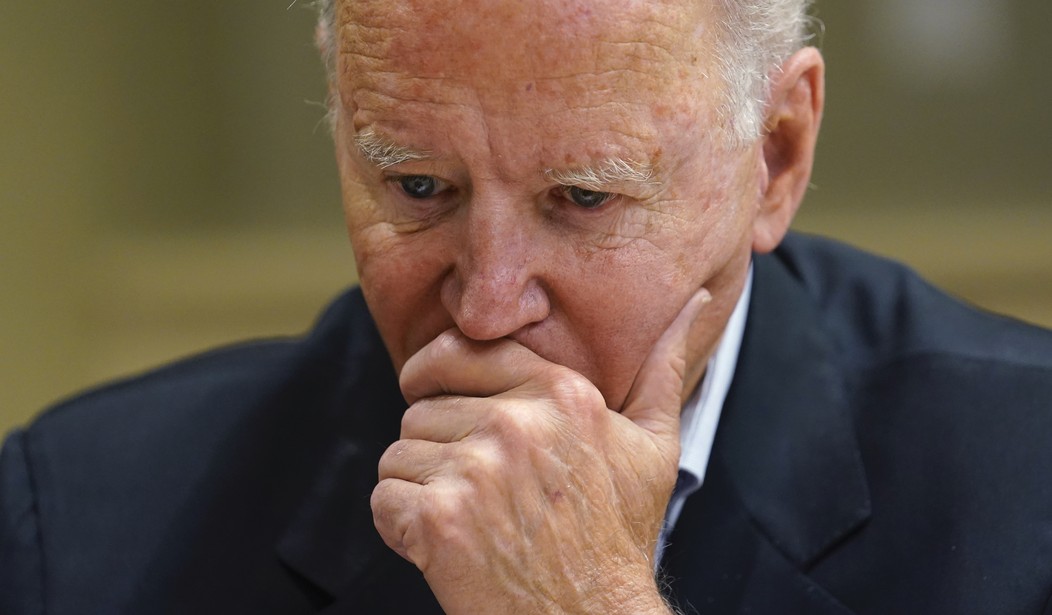President Biden recently unveiled a new executive order on “Promoting Competition” in the U.S. economy. Though the executive order is purported to ‘up our game’ – its health care recommendations plainly drop the ball. If Biden’s agenda is enacted as articulated, it would put American medical innovation at enormous competitive disadvantage – and carry especially devastating consequences for our most vulnerable populations, including seniors.
Biden’s EO states, "It is also the policy of my Administration to support aggressive legislative reforms that would lower prescription drug prices, including by allowing Medicare to negotiate drug prices..."
First, the idea that Medicare plans don't already aggressively negotiate drug prices with manufacturers is simply untrue. Biden knows this well, so what he is calling for is not merely a seat at the table -- but rather, the aggressive enforcement of government-set prices on new medications and cures.
The far-left’s desire to enact-and-enforce this new price control regime is exemplified by the AARP-endorsed “the Lower Drug Costs Now Act,” or H.R. 3, a disastrous piece of legislation that enriches Big Insurance while having devastating consequences for the same seniors AARP claims to represent. Why? Under the price controls this legislation imposes, manufacturers would be forced to charge the government price on medication or be faced with a 95 percent excise tax.
The inevitable consequence of these new taxes and regulations would be biopharmaceutical companies lessening the production of existing treatments seniors rely upon, like insulin. But more than that, the bill’s foreign reference prices would crush critical healthcare innovation as well. Government price controls always cause shortages — in this case, it would be shortages of new treatments and cures.
Recommended
It is proven that other countries that have adopted price controls—like the U.K.—have lower cancer survival rates than in the United States. In fact, a CBO report determined that, with a government price-setting scheme in place, 40 fewer new drugs will be introduced to the market over the next decade, portending a devastating decline in medical innovation.
Seniors, and those facing serious ailments, cannot afford to lose access to cutting-edge drugs and treatments that are critical to their health.
Unfortunately, AARP’s support for H.R. 3 comes as no surprise. They have maintained a stable profitable relationship with Big Insurance companies like UnitedHealth Group for the past decade. Indeed, a Commitment to Seniors report reveals the overwhelming financial dependency between the so-called “non-profit” organization and Big Insurance. Since the passage of the Affordable Care Act, UnitedHealth Group has paid AARP $5 billion in large part from its exclusive sale of “AARP-approved” supplement insurance coverage. This conflict of interest is noteworthy considering AARP’s support for a radical change to the American health care system, for which seniors will undoubtedly pay the price.
President Biden and AARP’s push for more socialized medicine is even more perplexing when reviewing their rationale. In his executive order, President Biden claims these policies are necessary because prescription drug “Price increases continue to far surpass inflation." Ironically, while gas, food, housing, and pretty much everything under the sun now cost way more under Joe Biden — prescription drugs do not.
As Brian Blase recently noted, while inflation ran at a scorching hot 5.4% pace from June 2020-June 2021, prescription drug prices actually fell by 2.5% during that same time. This data comes from Biden’s own Bureau of Labor Statistics, so his administration’s most recent numbers contradict the public claims he is making to justify a greater government takeover of healthcare. Once again, Joe Biden appears confused.
Conveniently, AARP forgot to mention the fact that prescription drug prices have fallen in their recent blog “5 Things That Are Actually Getting Cheaper,” which listed goods and services that have “bucked inflation over the past year.” C’mon AARP, seniors deserve to hear the good news!
Of course, AARP doesn’t want seniors to know this because if the federal government imposes price controls and access restrictions as Biden, Pelosi, and AARP now advocate, in the near-term, higher profits will flow through to UnitedHealth — the same insurance company that AARP is financially dependent on to stay afloat.
If there is any doubt that AARP advocates for Big Insurance rather than its membership, when the organization recently faced a lawsuit for ripping off seniors via its exclusive sale of UnitedHealth products, AARP defended itself by admittingthere’s no requirement for it to “act with the interests of [members] in mind.” Seniors — when AARP says they have no responsibility to act with your interest in mind — take them at their word.
To really promote health care competition in the U.S. economy, President Biden should reject demands from AARP and other far-left groups that are pushing for a new government price-control regime. Socialist policies don’t enhance competition at all – isn’t it obvious?
Jon Decker is the executive director of American Commitment.

























Join the conversation as a VIP Member